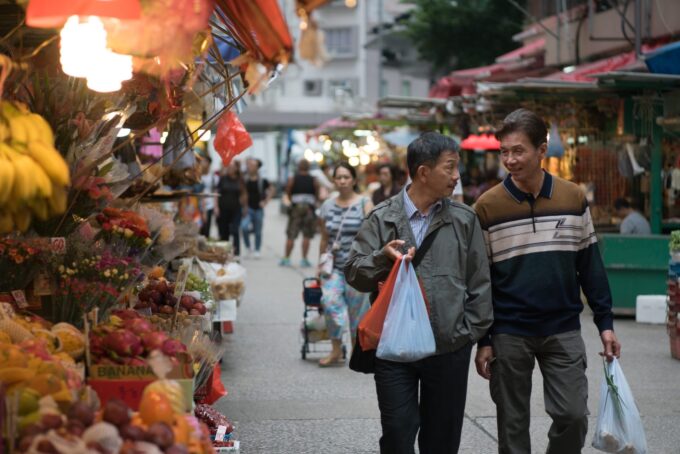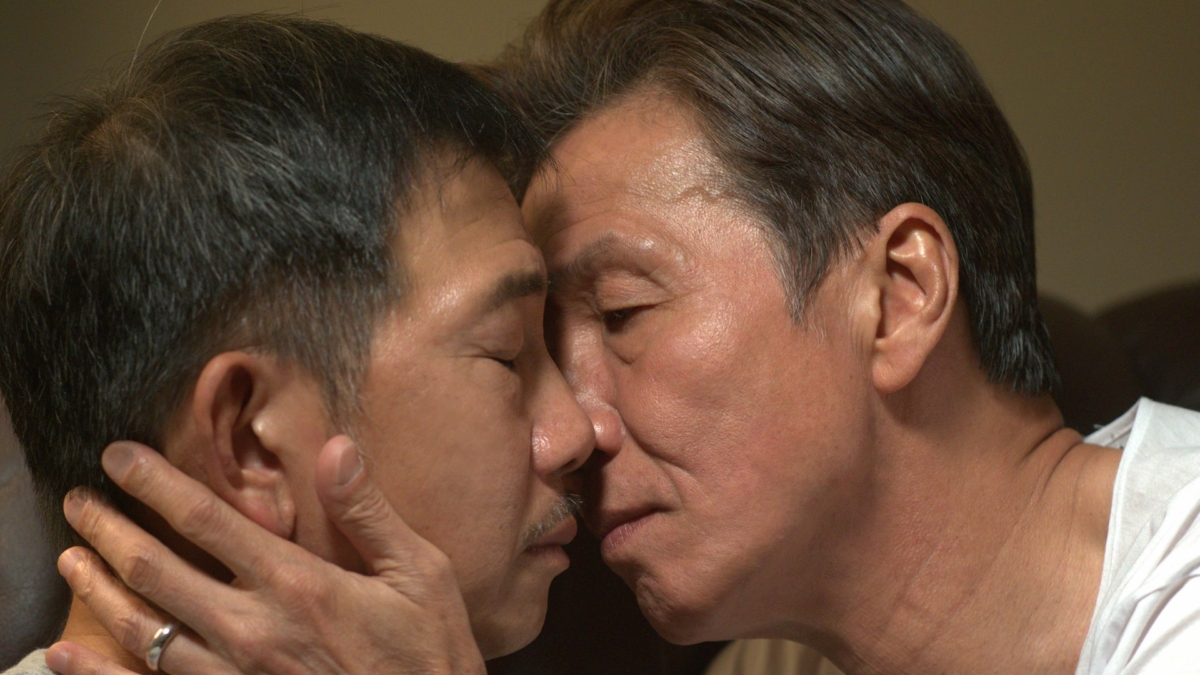They could be anyone’s uncles
Written By: Demi Guo
Before the pandemic, “Twilight’s Kiss” (released as “Suk Suk” outside of North America) had already been well-received by its Hong Kong audience. Director Ray Yeung awaited its international release with bated breath.
It is the story of a chance encounter between two closeted gay grandfathers — Pak (Tai Bo) and Hoi (Ben Yuen) — who grapple between being together or continuing to hide their sexuality. The question ensues: In a time where the youth grow up in an increasingly supportive LGBT environment, what has become of the older generation who’ve already married and built heteronormative families?
“Ninety percent of your life is in the closet,” Yeung said. “Then you get a coffee together, and for 45 minutes you get to be yourself. Then you pay the bill, go home, and go back to living a lie.”
As someone familiar with his past work, I am always happy to see what Yeung comes up with — especially because this is his homecoming film. A Hong Kong native, he went back to make “Twilight’s Kiss,” and it drenches you in a painfully intimate vision of his home — sans flare, sans fanfare, sans the tourist’s eye.
‘It’s about how society treats old people’
“It’s not just about LGBT,” Yeung said, during an interview with me before the lockdown. “It’s about how society treats old people as well.”
This is a pivot from his last two feature films, which followed young Chinese men in western LGBT society. He was inspired when he read “The Oral History of Older Gay Men in Hong Kong,” a book of Hong Kongers’ personal accounts of living in the closet.
When I called him again after its North American debut, he expressed satisfaction: His goal was to raise awareness about an otherwise hidden society. “On Twitter and through emails, I get a lot of nice messages,” Yeung said. “People look around and think, ‘These people could be them.’”
However, in the spirit of health, screenings are now largely online. Its pre-lockdown screenings in Hong Kong cinemas elicited emotional responses from seniors who had never seen their stories told before. Yeung is not sure if they are watching the film, meant for them, on the Internet. “Maybe it affects older people, but they’re not people who would go online and write a message,” he said, with a note of frustration. “There’s no chance to meet [them].”
The sound of Hong Kong
Yeung’s style relies on subtlety to express different parts of Hong Kong culture. This is a film that takes more than one watch: Blink, and you’ll miss. Whether this is to his advantage or not is up to you to decide, but here’s one detail I found in particular: Pak and Hoi’s respective families share meals differently. One eats with chopsticks even on the nights they decide to eat western food, and the other uses forks.
Most distinct is the sense of place: The first scene of “Twilight’s Kiss” opens on Pak, a taxi driver, cleaning his cab in Sham Shui Po. Sham Shui Po is a booming residential and commercial neighborhood known as one of the last neighborhoods to have that shabby, night-market-esque, neon-lit “old Hong Kong look.”
But Yeung chooses to film it in the daytime in an inconspicuous side street. It is only because I lived there that I immediately recognized the neighborhood; it’s not meant to show a touristy, glitz-and-glamor picture of Hong Kong.
Instead, we watch Pak and Hoi haggle for groceries at the wet market. When crossing lights change, the familiar bell for sight-impaired pedestrians starts rattling.
But the bathhouses are the most intimate look into a subculture of Hong Kong’s LGBT community. Gay saunas, Yeung explained, are geared towards young men, and often turn away seniors. A bathhouse for older men is a rare safe space. Unlike their western counterparts, they play Chinese opera and programs from the ‘80s.
“It’s a place where they can go be themselves,” he said.
People were worried, Yeung said, that he’d been living in the west for too long and wouldn’t capture the essence of Hong Kong. “‘You’ll make it look like Mulan,’” he recalled people telling him. But, he said, they changed their tune when they saw the final product.

Meta meta
Western audiences may indeed find the characters’ choices and interactions implausible, unless approaching the film with a more East Asian mindset. Pak and Hoi are motivated by their pride in their families and places in society, but Hoi’s strained relationship with his son is the most obvious example: They care for each other, but their emotional expression is stinted.
Yeung interviewed seniors living in the closet to get the story right. In one instance, he said, a man who could not walk applied for a program to deliver meals to his home. During the vetting process, he was so paranoid about discrimination for his sexuality that he threw out any sign that could code him as gay — including his Hello Kitty collection.
Keep an eye out for Hello Kitties in the film. Yeung said he used them as props as a reference to this anecdote, and afterwards gave them to the man to replace the collection he had lost.
Yeung often emphasizes a need to provoke discussion about identity, and this is the peak example. Watch if you’re ready to look for Easter eggs and watch Tai Bo and Ben Yuen aggressively micro-express at each other. The themes are universal, but they are told in such an understated, sleight-of-hand way that it would be doubly fun to sit down with an audience of different backgrounds, just so you can sit down and talk about your different interpretations afterward.
Even its original name, “Suk Suk,” is familiar: It is Cantonese for “uncle.” The message is clear: Pak and Hoi could be any uncle you meet on the street.
“Twilight’s Kiss” makes its NYC premiere at the 43rd Asian American International Film Festival. Ticket and screening information can be found here.

